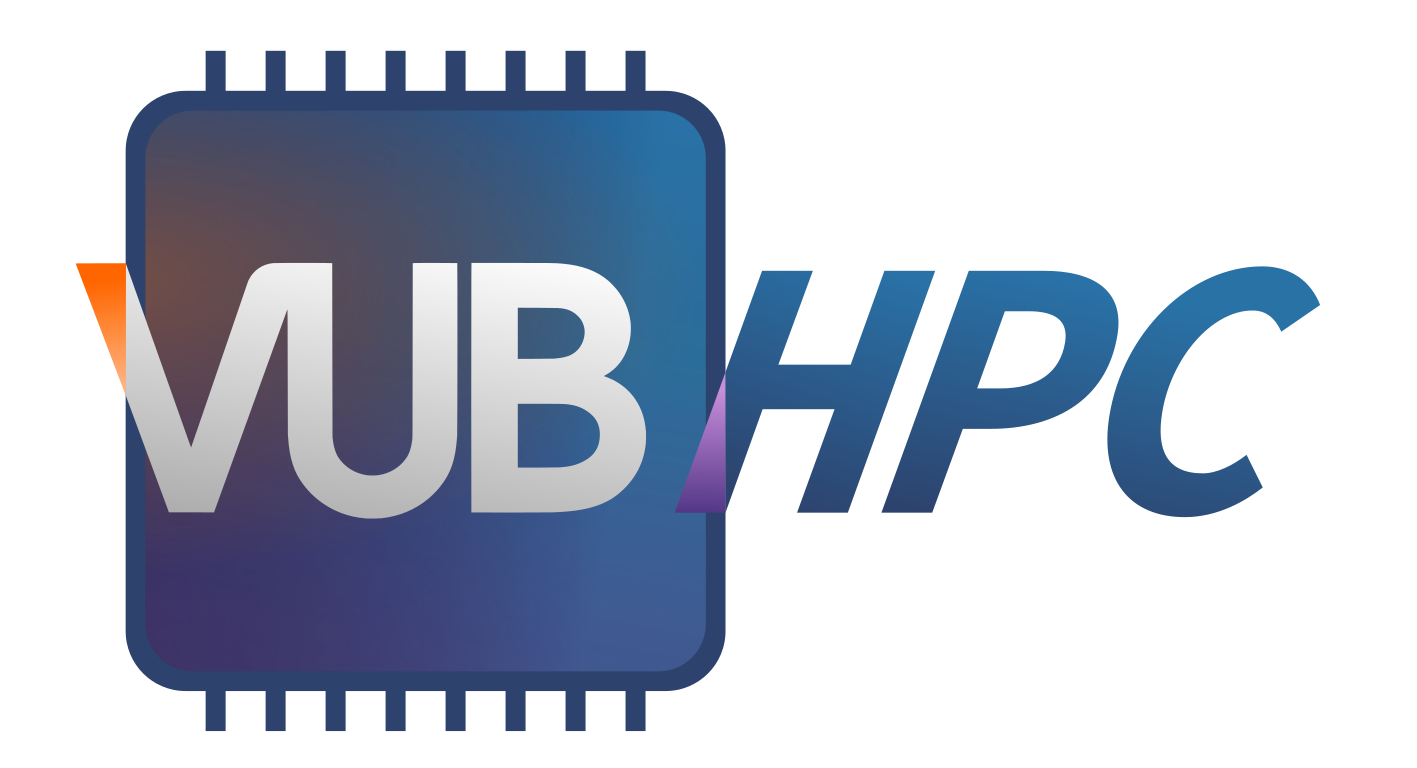User survey 2021#
We have published the results of our yearly user survey, conducted in February 2021. Feedback from users’ experiences in Hydra adds valuable insight into their needs, what works well, and what needs further improvement.
This year the survey was directed exclusively at VUB users, as Hydra has become a VSC-only cluster in September 2020. We counted 218 active VUB Hydra users in 2020 (i.e. submitted at least one job). We received 49 survey responses (at least one question answered), representing 22% of our user base.
If you have any questions or comments, feel free to contact us at VUB-HPC Support.
Faculty#
Respondents belong to one of five VUB faculties. As expected, most of them are from the traditionally strongly represented Science and Engineering departments. Notable faculties not represented are:
Arts and Philosophy
Law and Criminology
Physical Education and Educational Sciences
Vesalius College
To further expand our user base, we are preparing efforts to make Hydra better known to the traditionally less HPC-oriented research groups. We’re also investigating ways to make our services more easily accessible to less IT-minded researchers.
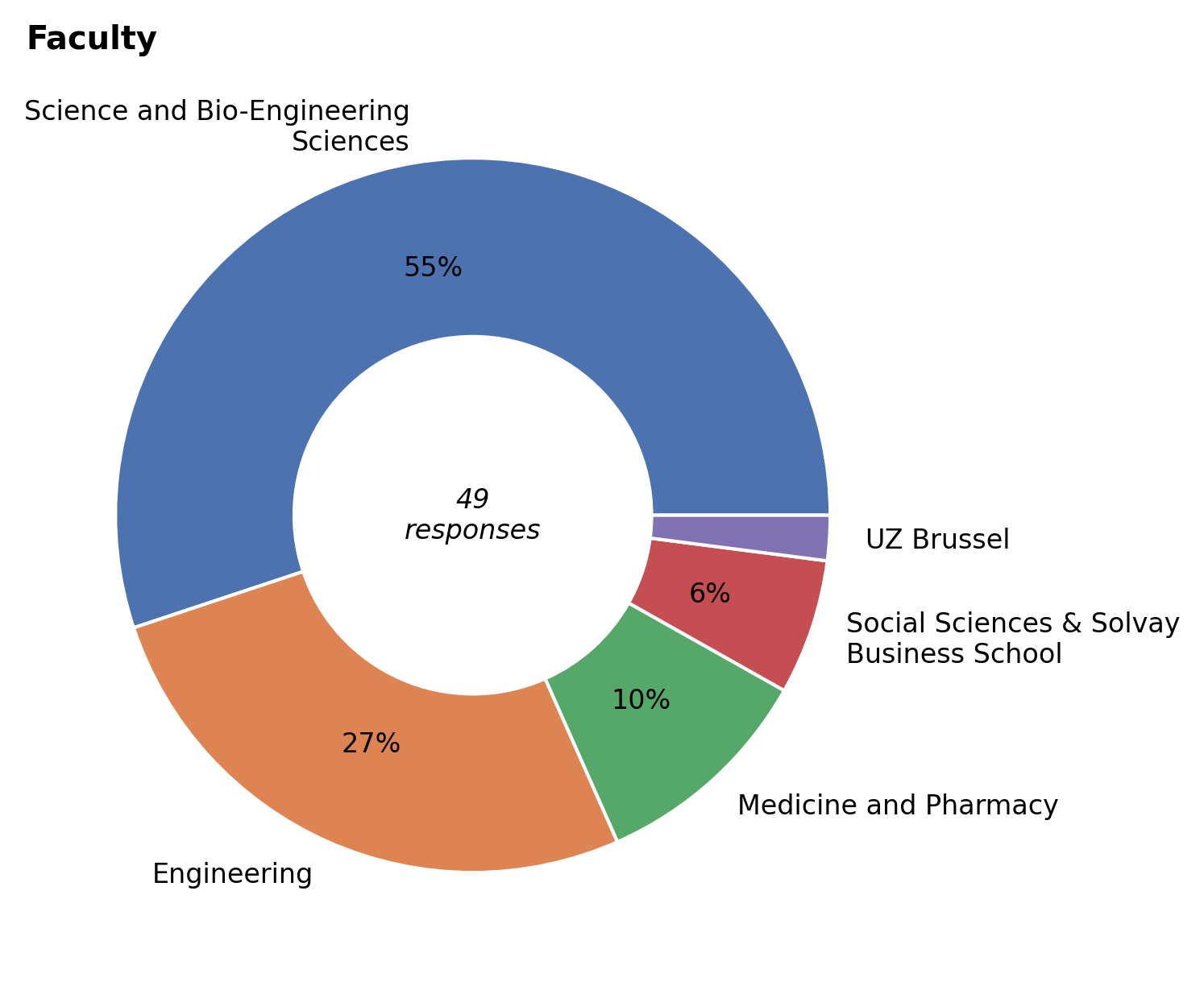
Research field#
Hydra serves researchers from a wide range of fields and sub-fields, with Computational Chemistry at the top, and Bioinformatics a distant second.
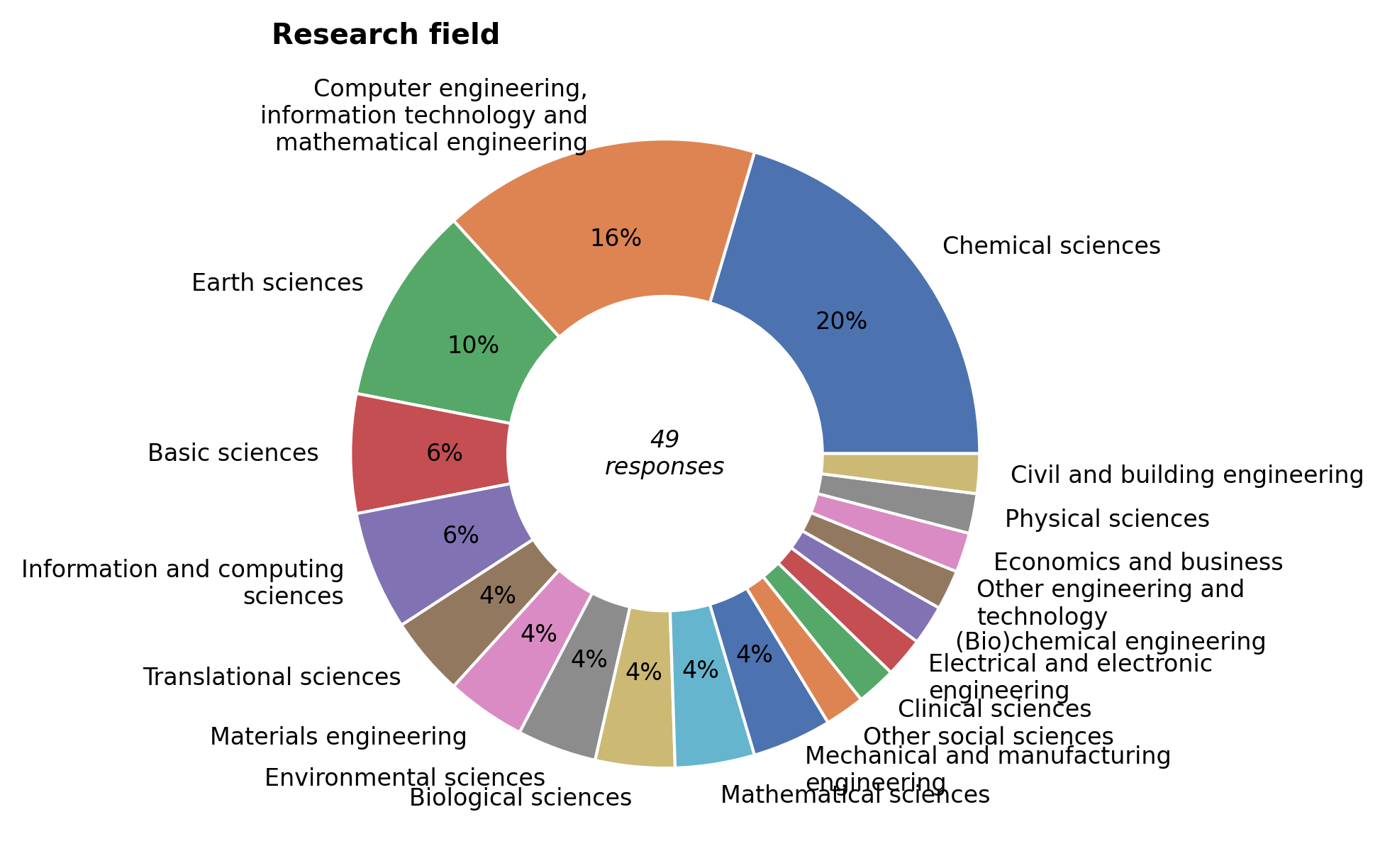
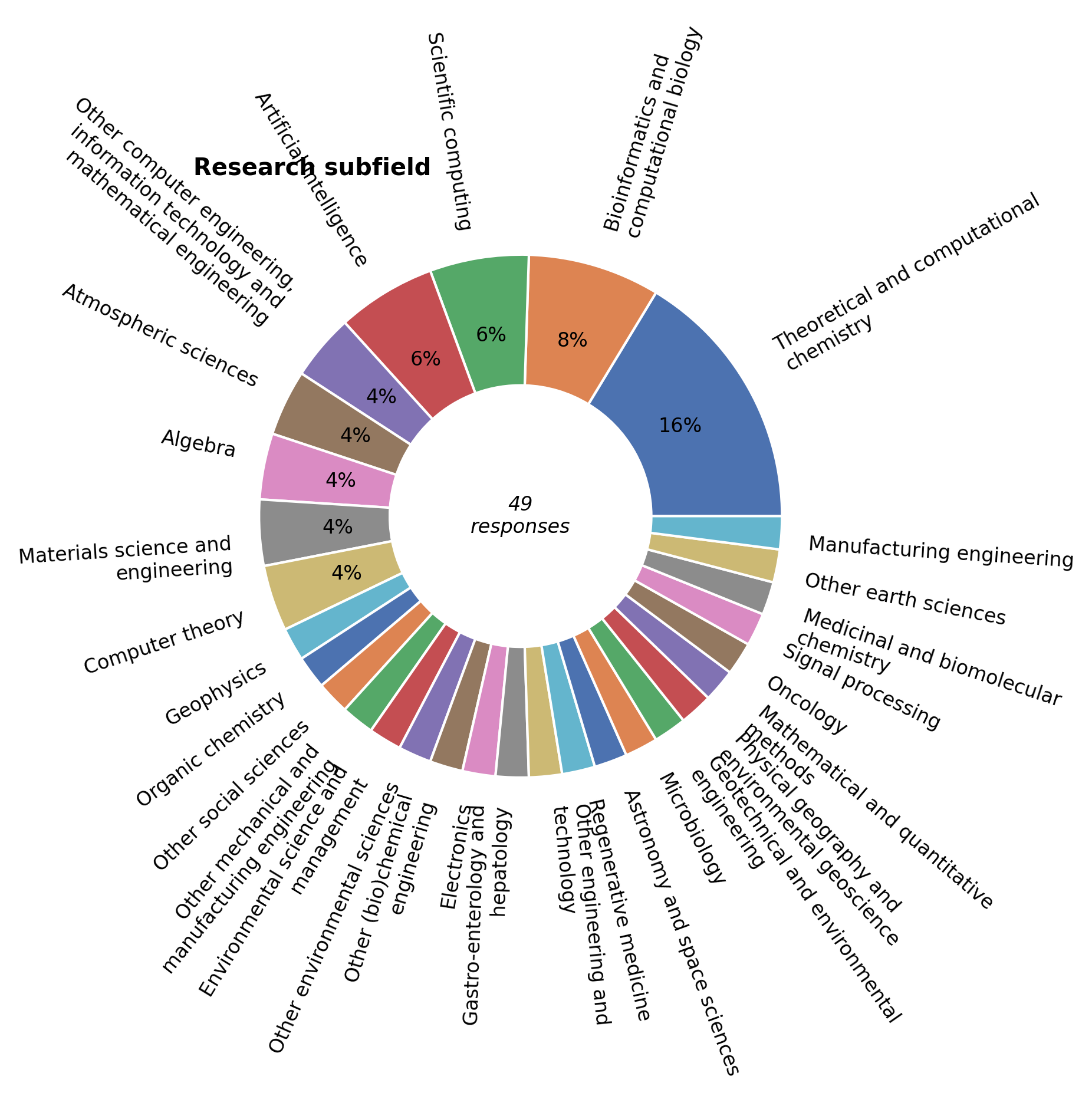
Importance of Hydra#
Hydra was rated very helpful to crucial for their research by 88% of respondents.
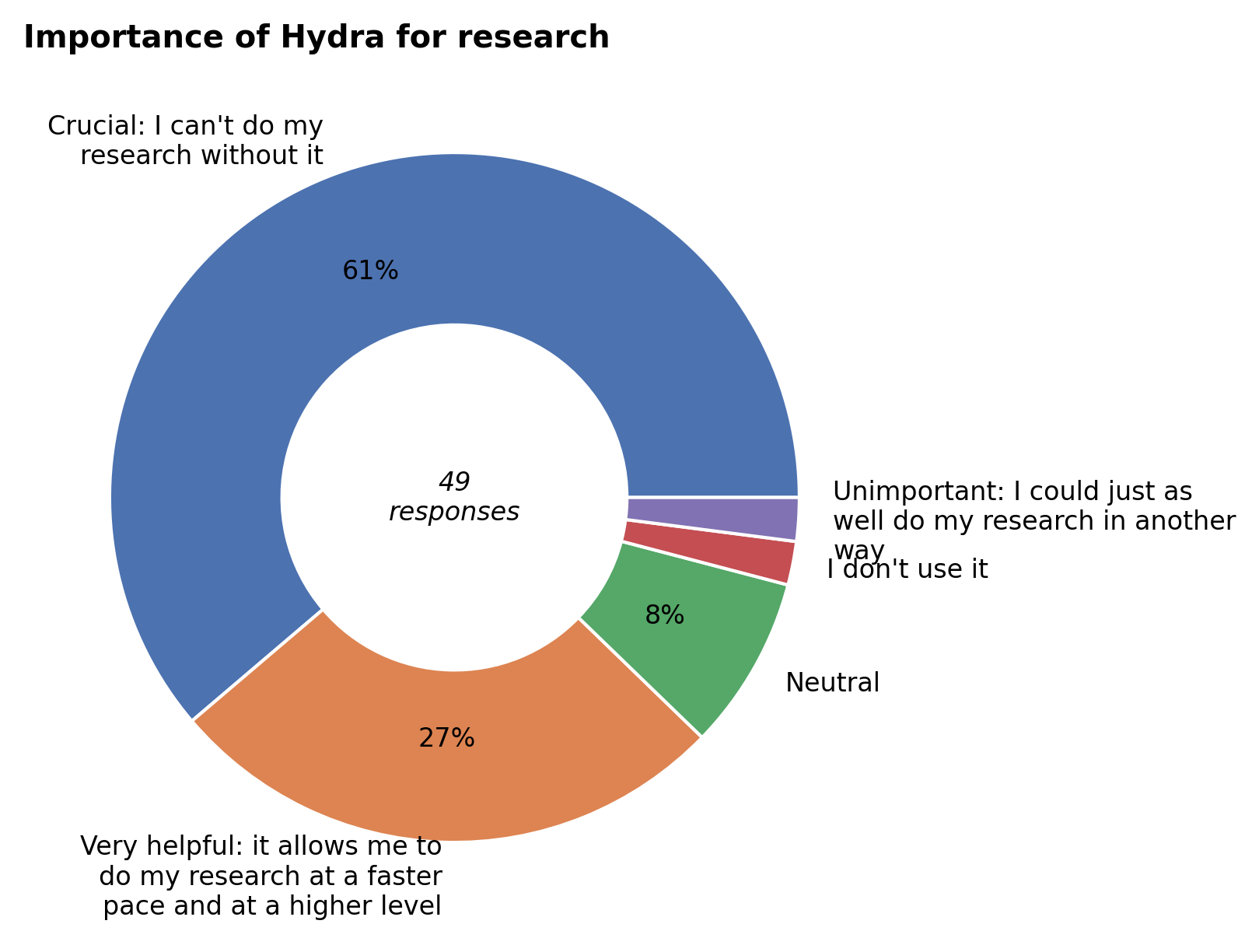
Overall rating#
Overall, 85% of responses rated VUB-HPC services as high to very high quality.
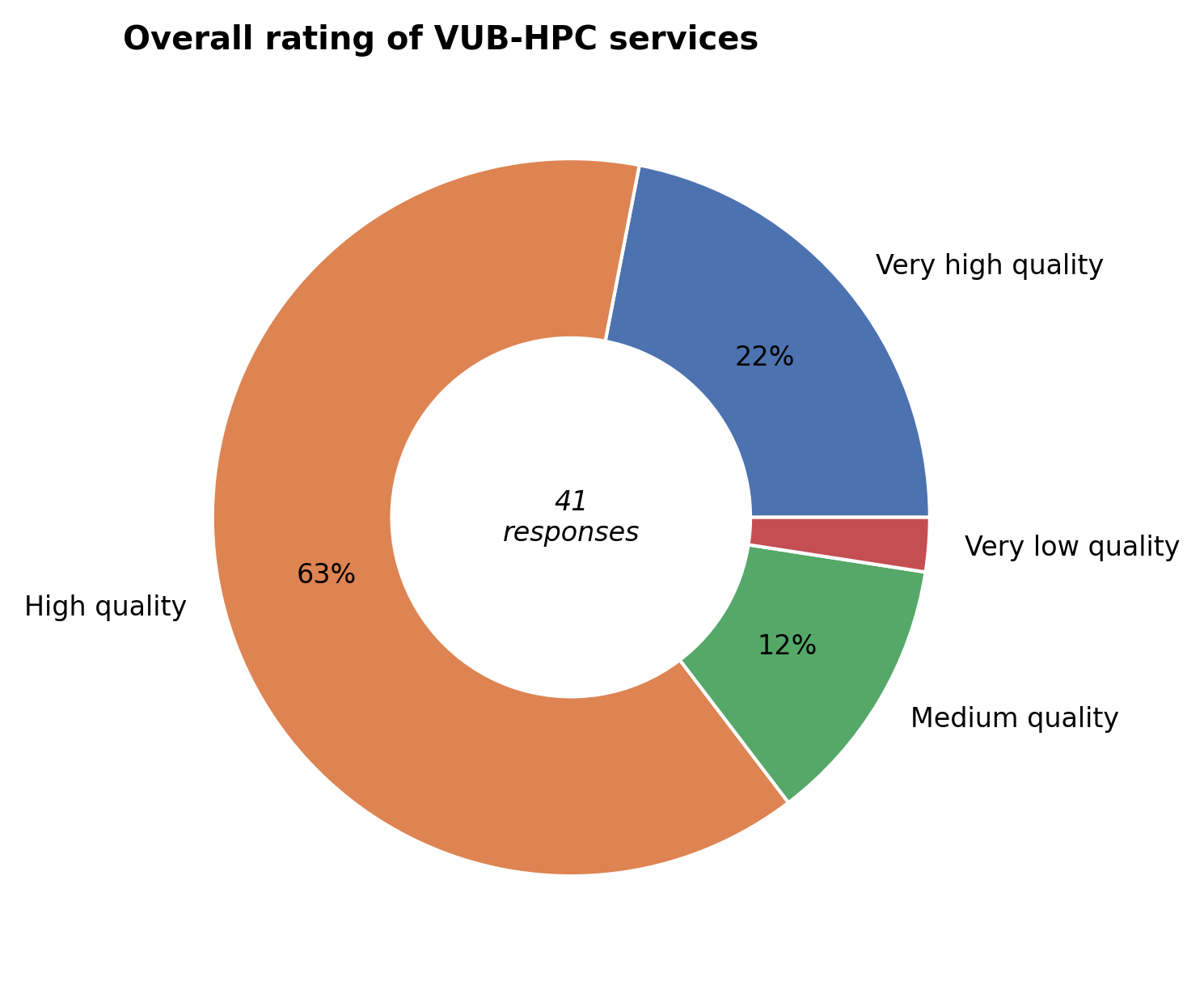
Getting access#
According to the respondents, creating a VSC account and login to Hydra was generally doable, although a considerable number of users needed help. Two security measures taken in 2020 by the VSC contributed to the difficulties experienced:
All SSH keys were revoked (and new keys must be 4096-bit size).
Users connecting from outside Belgium have to register to the firewall first.
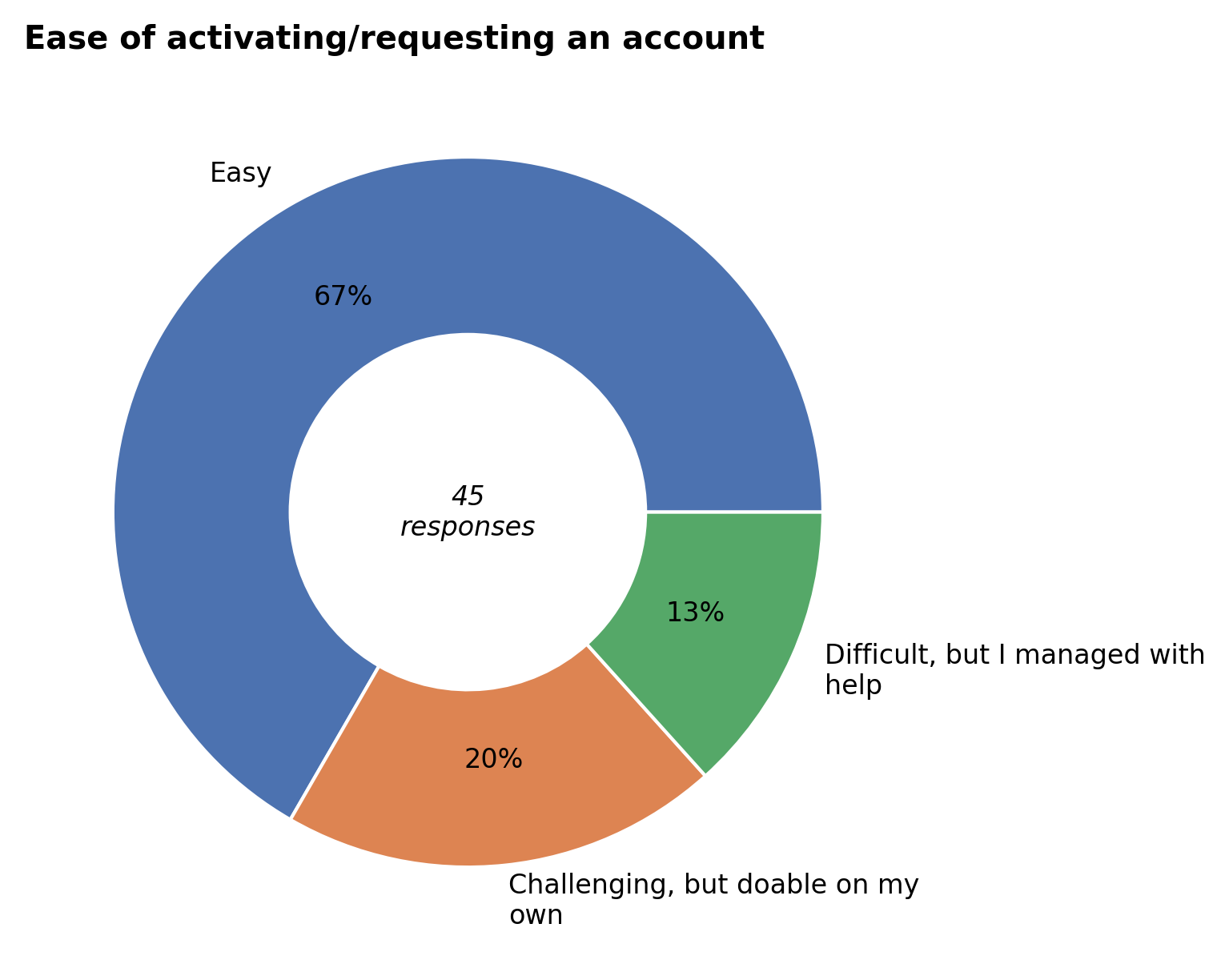
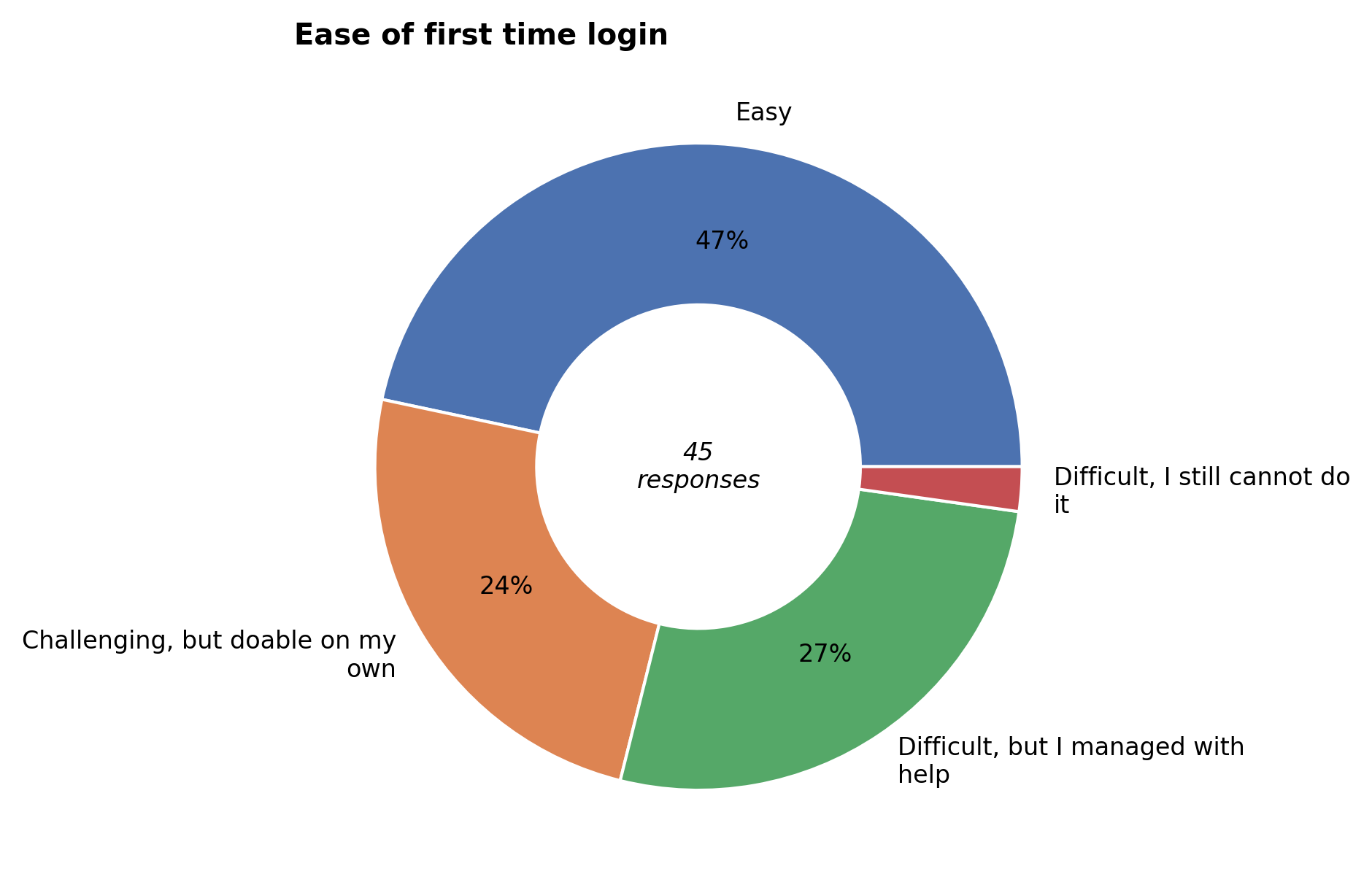
First time usage#
Finding software and submitting a job for the first time was doable for most respondents, but many of them needed help and some still experienced difficulties. If you still need help, we kindly refer to the introductory training sessions (organized twice per year), training slides and accompanying videos, and friendly user support Helpdesk.
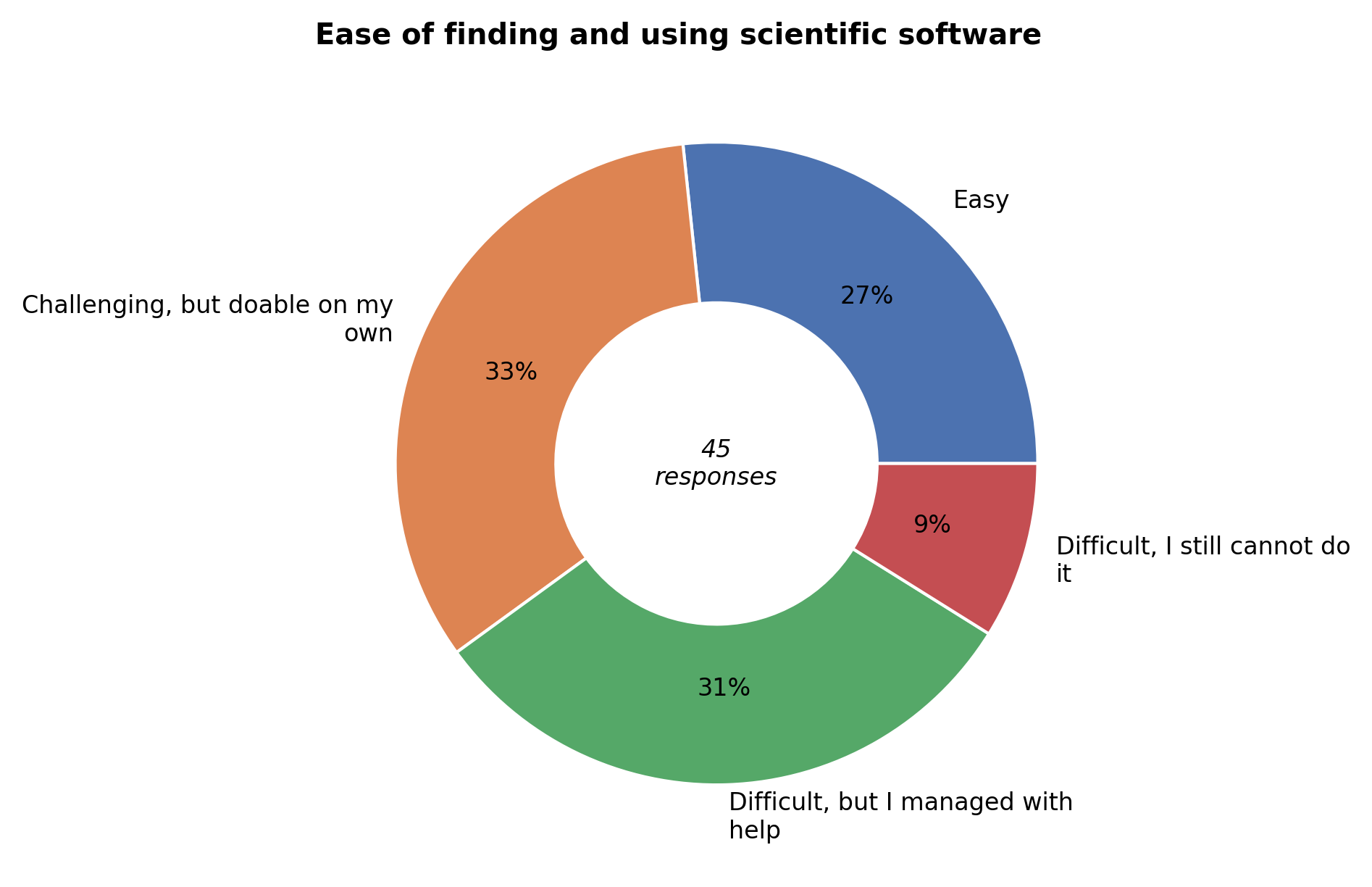
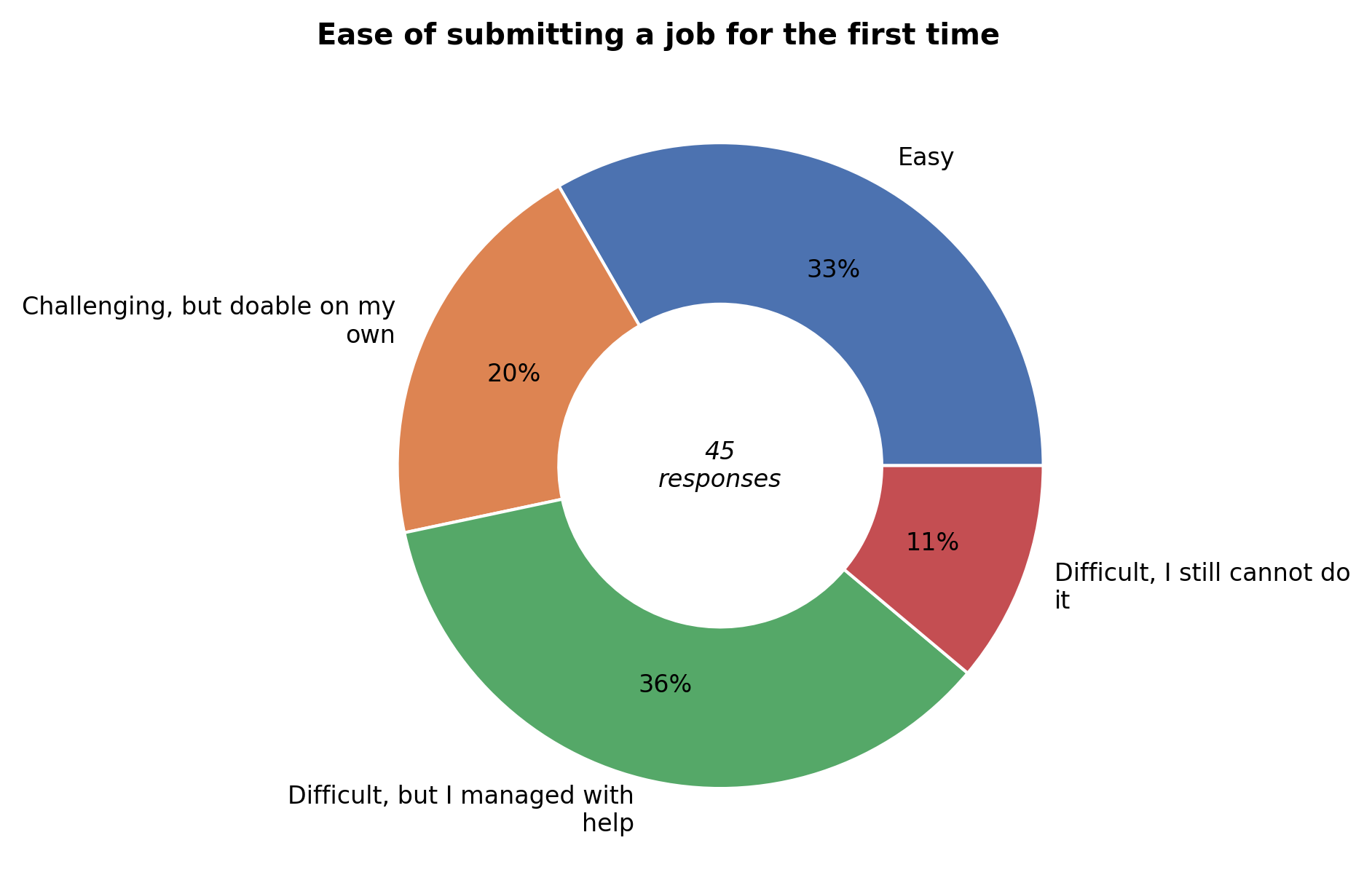
User support#
All respondents rated the quality of support good or excellent, and those who made software installation requests were generally quite happy with our help.
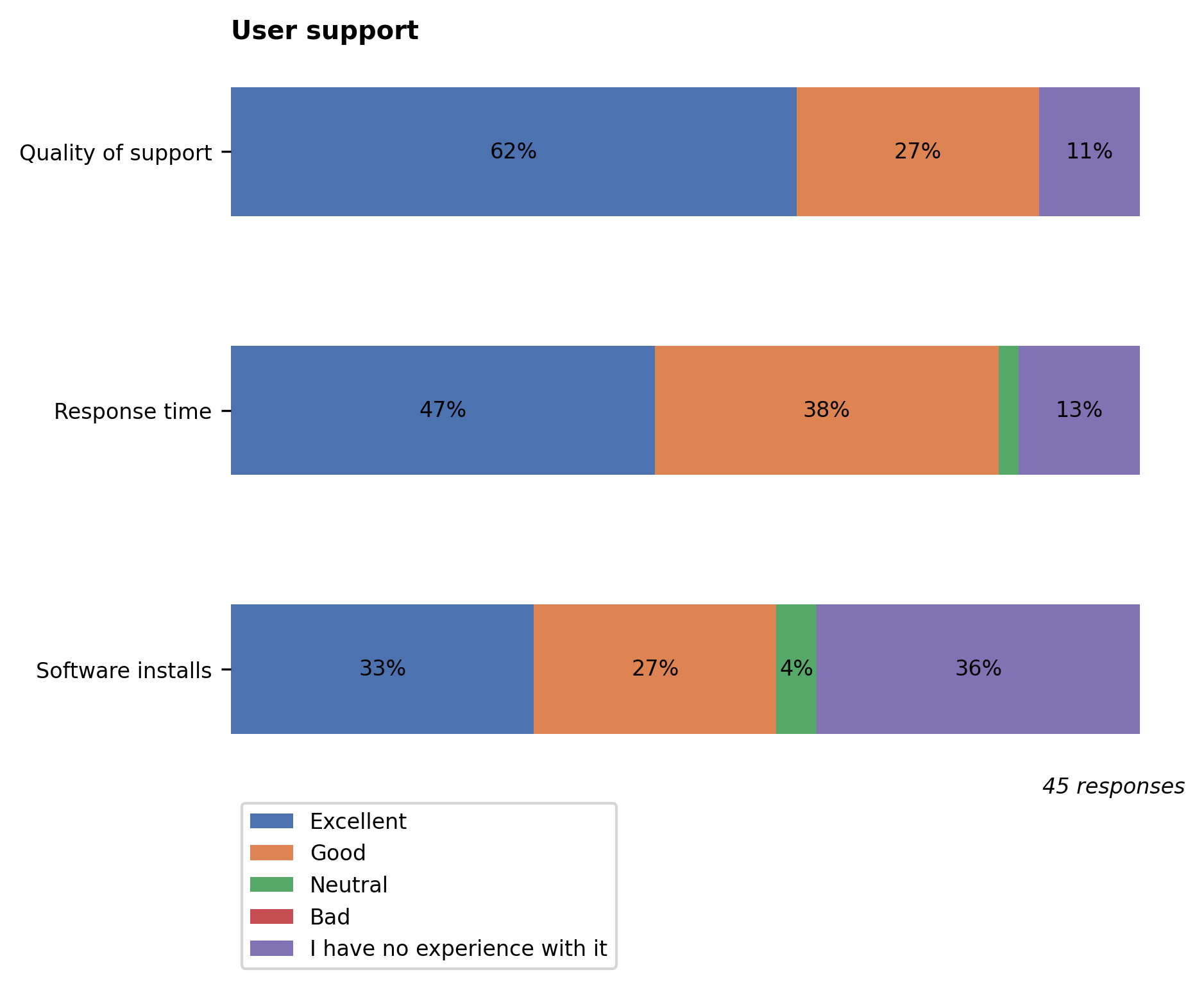
Documentation#
The documentation websites https://hpc.vub.be/documentation (Hydra-specific) and https://docs.vscentrum.be (general VSC), as well as the training sessions organized by the VUB-HPC team, are well known and mostly rated useful or crucial.
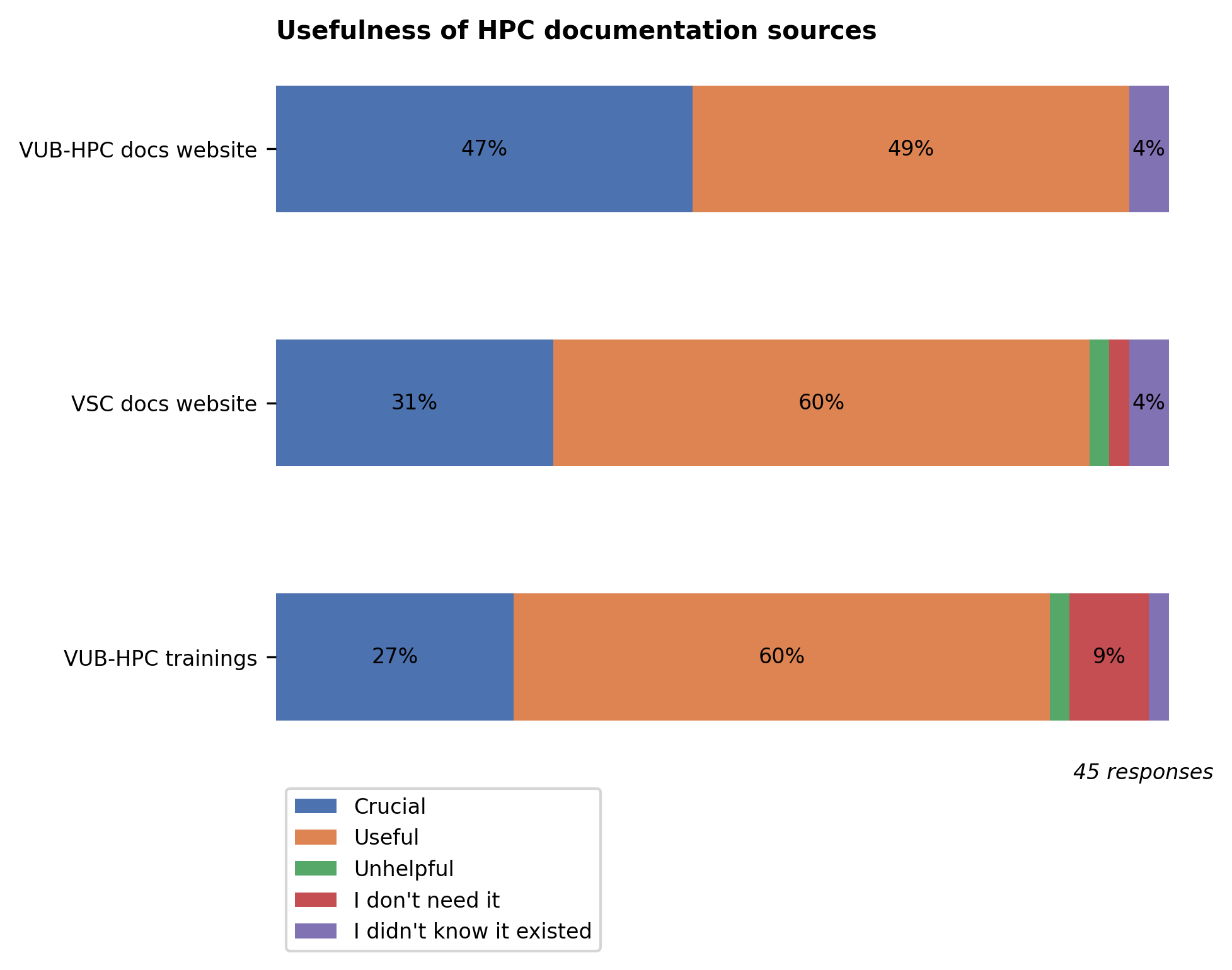
Communication#
As revealed by the survey, our news page was rather unknown by the respondents. To address this, we have integrated the news items and events into the documentation site at https://hpc.vub.be, and we took this occasion to revamp the style, which will hopefully make it even more useful.
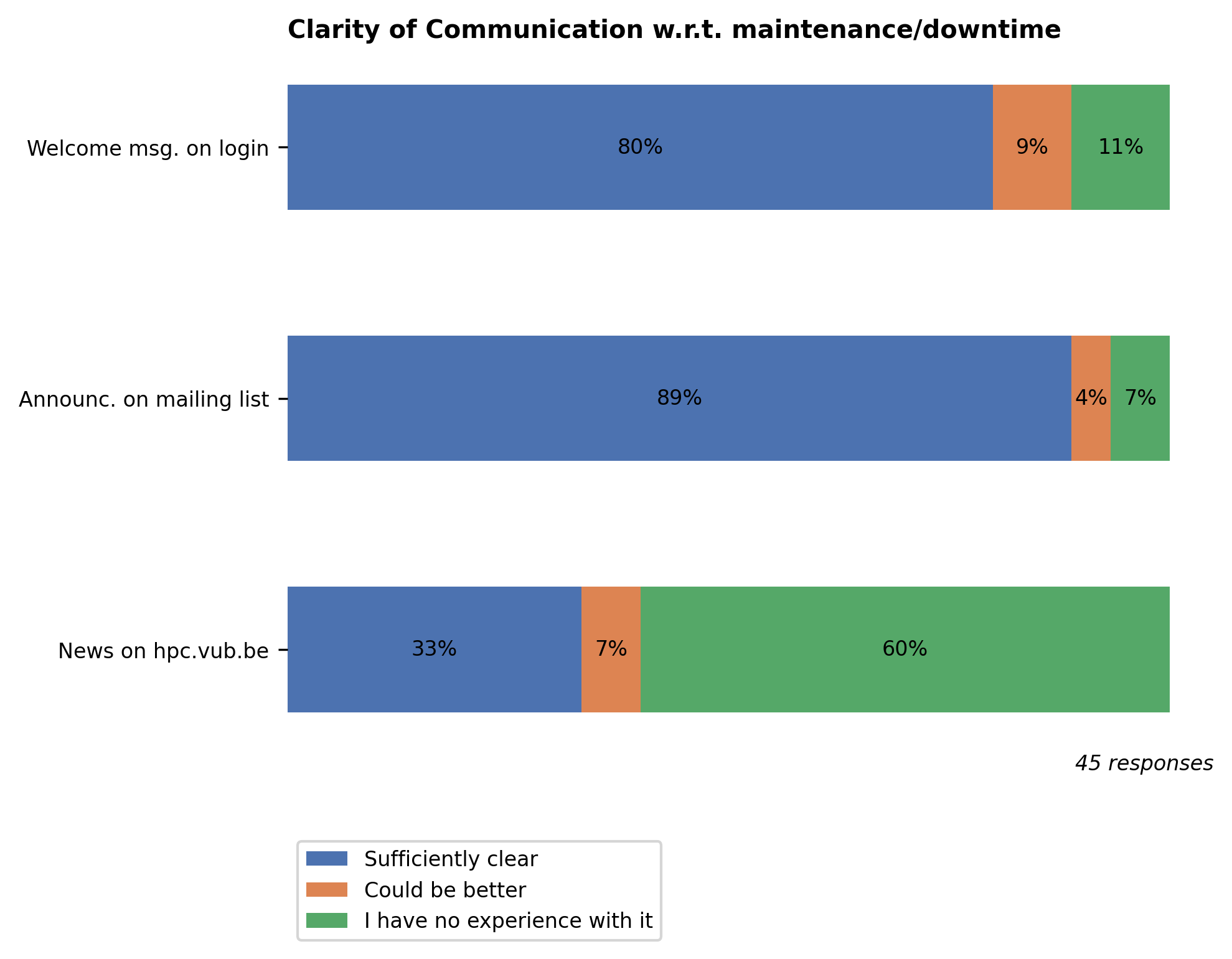
Software sources#
It’s gratifying to note that the software modules available in Hydra are widely used, as the HPC team puts a lot of effort to make sure they run correctly and with optimal performance. However, we also note high usage of binaries from external sources. We generally do not recommend the use of external binaries as they are usually not optimized for the different CPU architectures available in Hydra. The same remark applies to conda and pip packages. If the sources are publicly available, we’ll be happy to build it and make it available as a module for you.
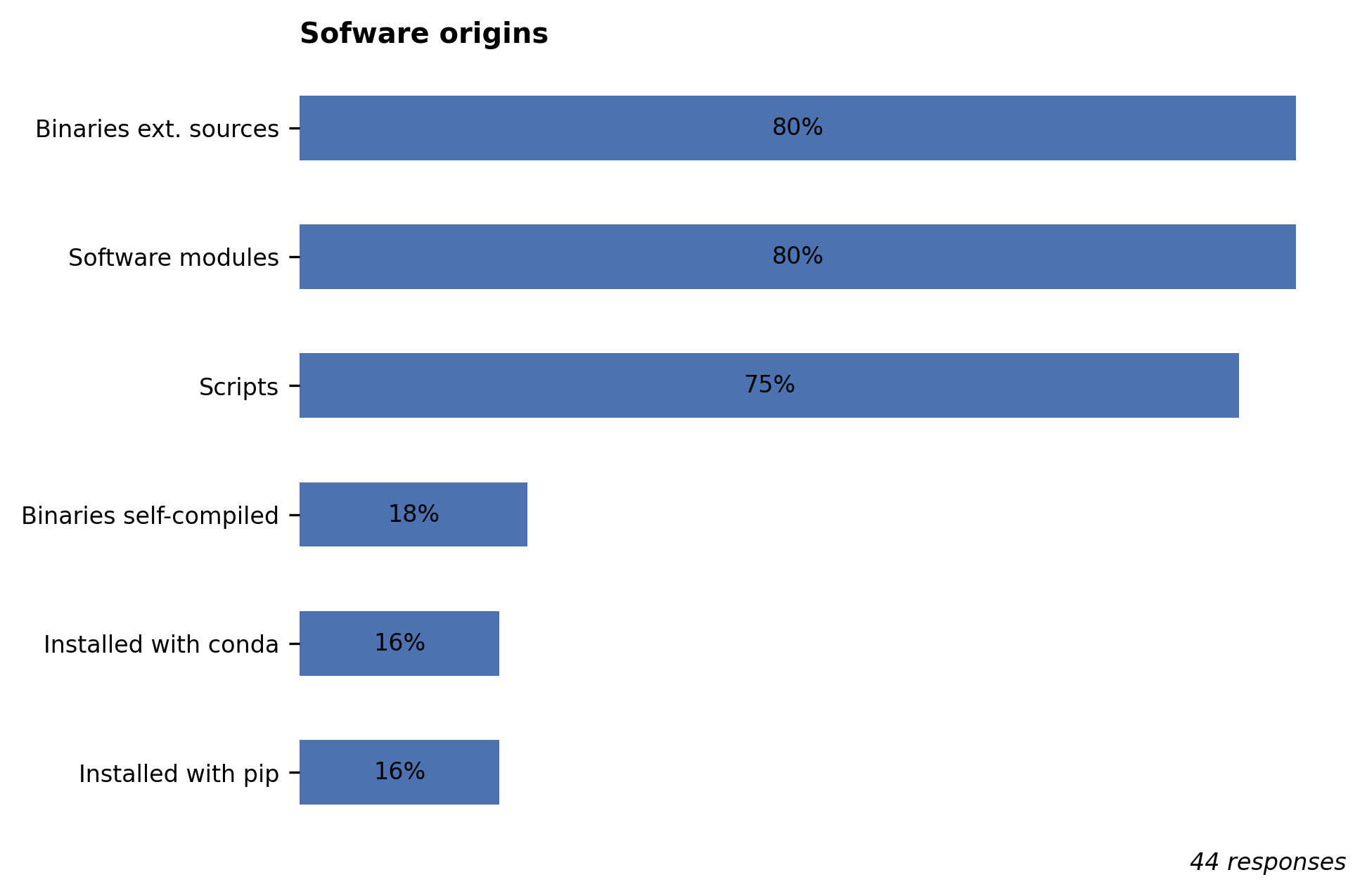
Python is by far the top scripting language, followed by shell scripts and R. Many users (9%) still rely on Matlab as well, despite its lower overall performance.
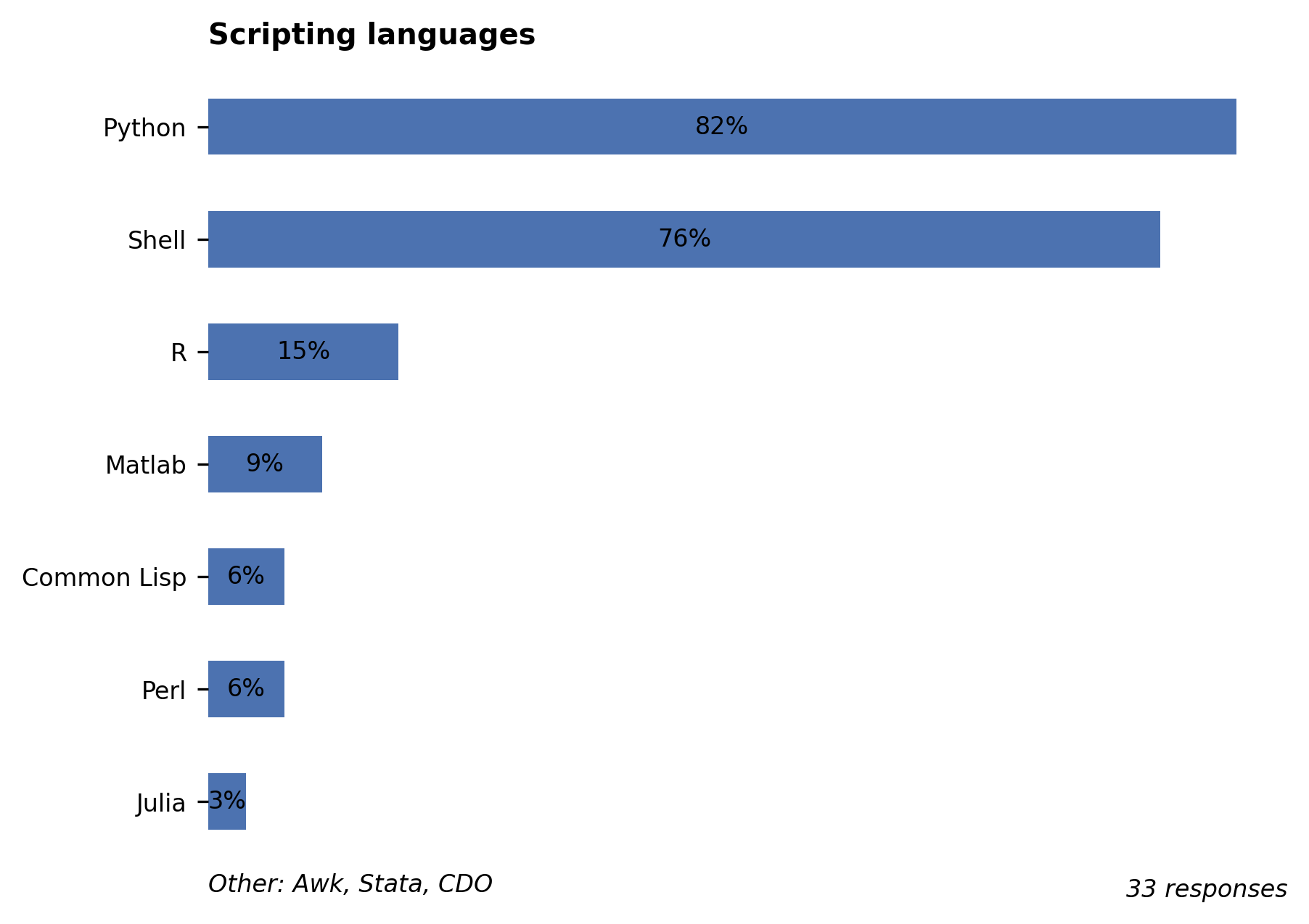
Job management#
We’re pleased that job array tools (job arrays, atools) and task farming tools (worker, and GNU Parallel) show up prominently in the survey. On the other hand, job workflow managers such as snakemake are much less used, despite their importance in creating efficient and reproducible scientific computing workflows.
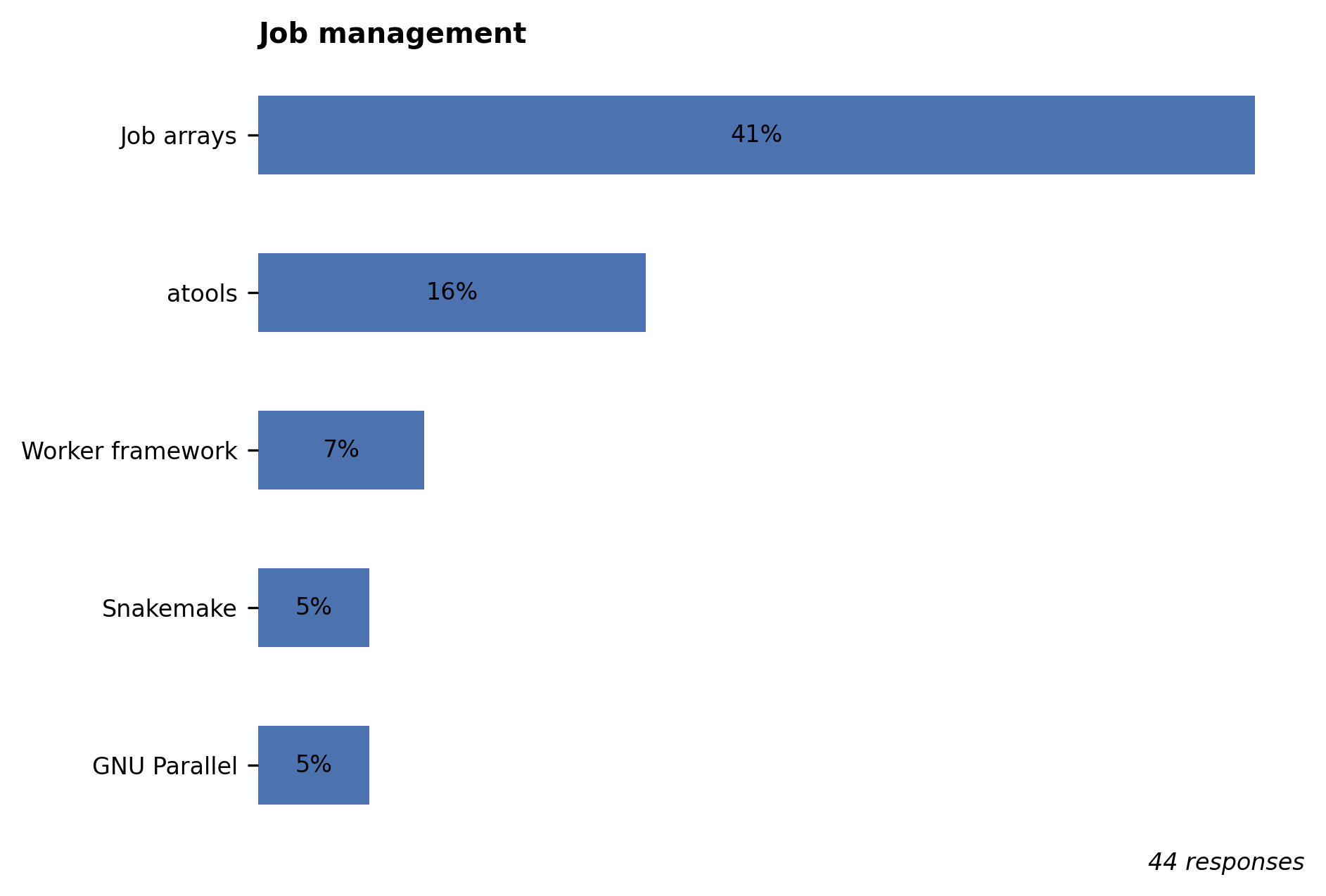
Components usage#
Respondents expected to use in future more of the components listed below. We will take this info into account for our next purchase of hardware for Hydra.
MPI nodes
High-memory nodes
(multi-)GPU nodes
Storage: high capacity and fast job I/O
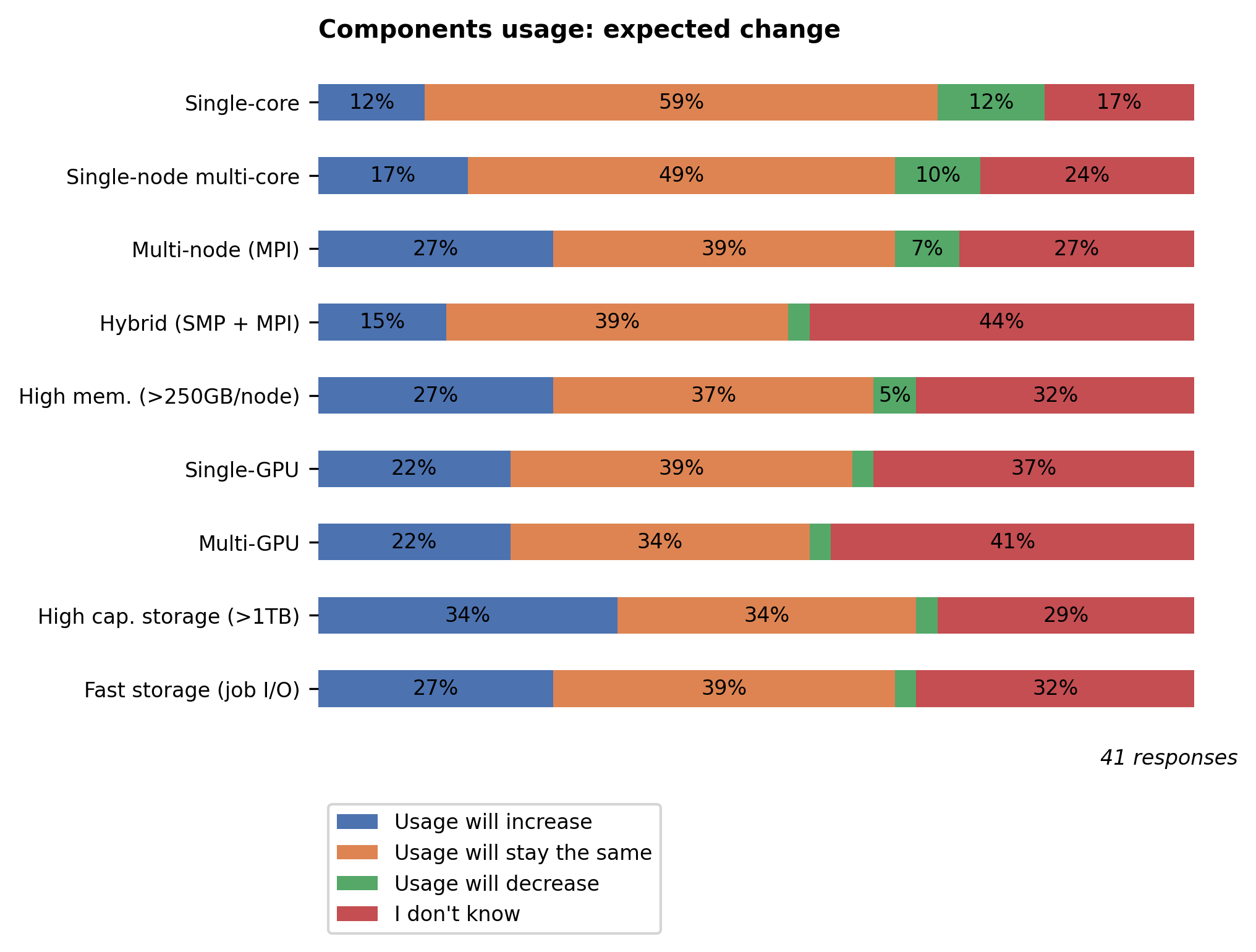
Usage of other HPC sites#
Usage of other VSC Tier2 HPC sites remains low, again highlighting the need to lower the barrier for switching between VSC HPC clusters and harmonizing the user experience across the different VSC HPC clusters. Low reported usage of the VSC cloud is expected since it was still in pilot phase last year (will be launched for general availability in May 2021).
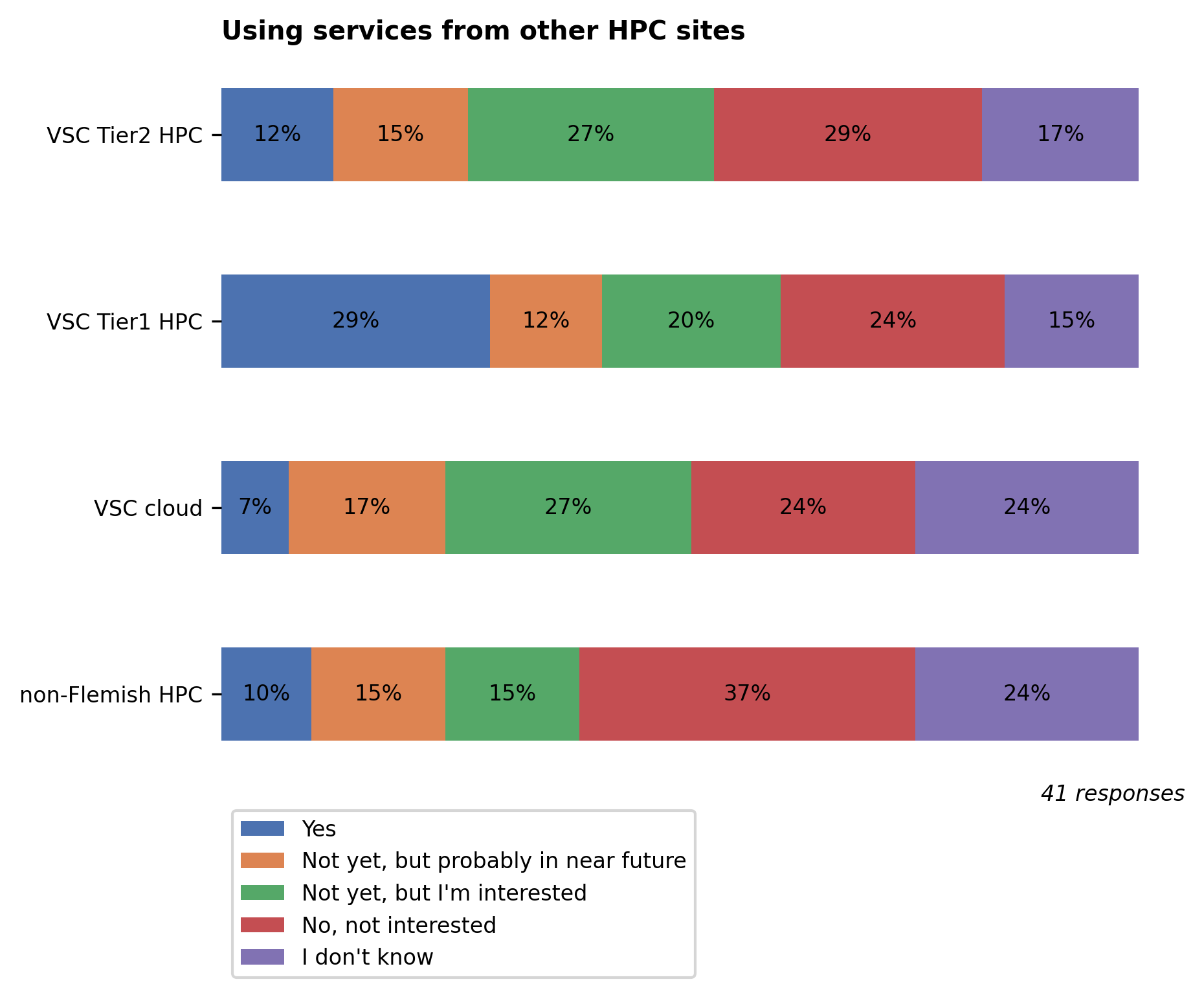
User requests#
We also asked users if they have requests for specific technologies or services that VUB-HPC does not yet provide. Below we briefly discuss the interesting suggestions.
- JupyterHub for interactive post-processing on compute nodes
This is a question that comes up regularly from various users. Although it is already possible right now, the procedure is not straightforward. We are working on a solution for this.
- Tier1 iRODS as mounted storage on Hydra and other Tier2 clusters
This needs to be discussed with the VSC to make it happen.
- PBS Pro for more complex and refined submission requests
We are preparing to switch from Torque/Moab to Slurm workload manager in the near future. We are confident that Slurm will address the needs of advanced users.
- Data security for medical genomics
We’ll have investigate what are the possibilities, depending on the degree of security that is required and the cost of the available solutions.
